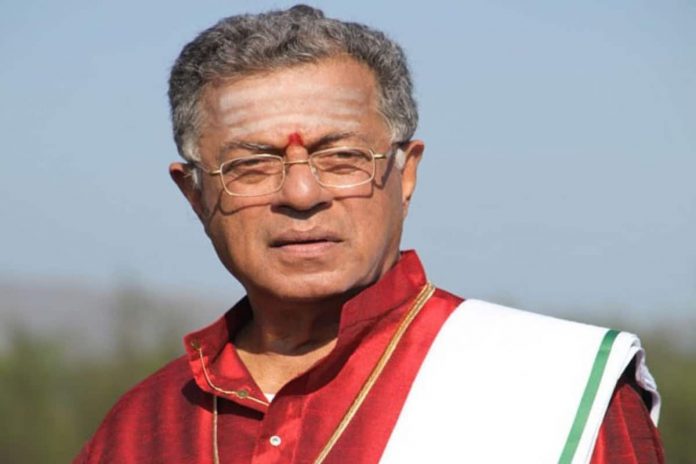Veteran actor, director and playwright Girish Karnad passed away in Bangalore on 10th June due to multiple organ failure. He was 81. He had been admitted to a hospital where the end came.
The actor was a force to reckon with in theatre. His plays, written in Kannada, were translated in several other languages. Among the films he acted in were Manthan, Swami, Man Pasand, Ek Tha Tiger, Shivaay, Hey! Ram, Pukar, China Gate, Ratnadeep, Nishant and Marathi Umbartha. He also acted in Kannada, Tamil, Telugu and Malayalam films. Among his films due for release are Shabdamani, Vidura and Pora in Kannada, and Sketch For Love in Telugu. He was one of the front-runners in the art cinema movement of the 1970s and 1980s.
Girish Karnad was a Jnanpith award-winning playwright. He had also directed films like Utsav (Hindi), Vamsha Vriksha (Kannada), Kaadu (Kannada), Ondaanondu Kaaladalli (Kannada) and Godhuli (Hindi).
Karnad was born in Matheran. He did B.A. in Mathematics and Statistics from Karnataka, and M.A. in Philosophy, Political Science and Economics from Magdalen in Oxford (England). He worked with the Oxford University Press in Madras from 1963 to 1970 but quit the job to pursue writing. He served as director of the Film And Television Institute Of India (FTII) in 1974-75 and chairman of the Sangeet Natak Akademi. He also served as director of the Nehru Centre and as minister of culture in the Indian High Commission, London from 2000 to 2003.
He was awarded the Padma Shri in 1974 and Padma Bhushan in 1992. He bagged the National Awards ten times, including for the Best Director and Best Feature Film for Vamsha Vriksha in 1971, Best Feature Film in Kannada for Tabbaliyu Neenade Magane in 1977, Best Screenplay (jointly with Shyam Benegal and Satyadev Dubey) for Bhumika in 1978, and Best Feature Film in Kannada for Kaanuru Heggadathi in 1999.
He was a social activist too. He was a proponent of multi-culturalism and freedom of expression, and a critic of religious fundamentalism and Hindutva.





























